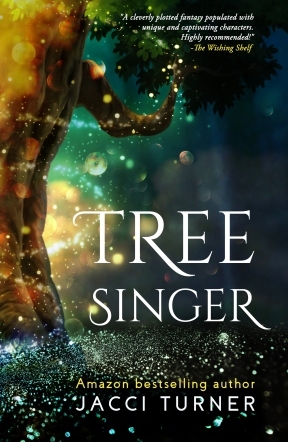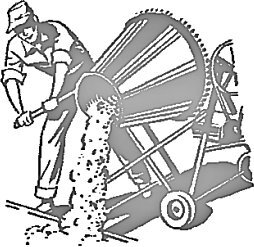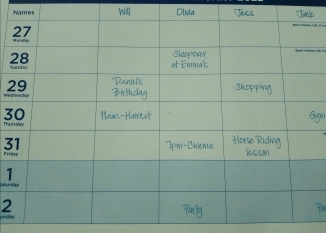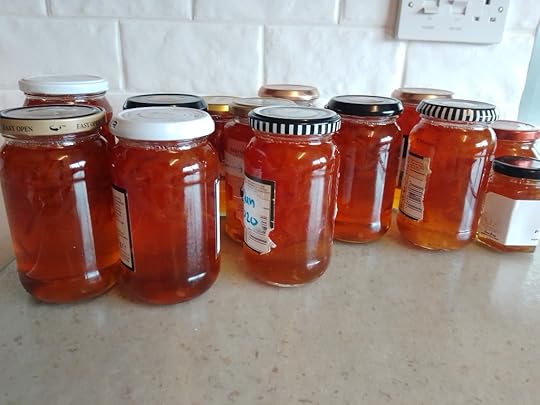Sally Jenkins's Blog, page 10
July 23, 2022
How to Make Money as a Writer – plus A Giveaway!
In my previous post I mentioned doing a Zoom Novel Writing course in the hope of reigniting my enthusiasm for writing. The course did make me write a chapter of a brand new story (hurray!) and I got to know Jacci Turner, the lovely course tutor from Northern Nevada. She has some wise advice to share with us plus an exciting giveaway, over to Jacci:
I’ve had the pleasure of getting to know Sally through an online writing class and she is delightful, plus a very strong writer. We decided to collaborate on a fun project. My latest book, Tree Singer, which is a Young Adult Fantasy, is now out on Audible and I’ve been given fifty free coupons to give to people to listen and hopefully write reviews.
The thing is half of these people need to live in the UK. So, we decided to offer 20 free copies of the audio to the first 20 people to write a comment on this post on Sally’s blog. Sally also invited me to share a bit about writing with you, so here goes:
How to Make Money as a Writer
Don’t quit your day job. I say this in the kindest possible way. To put financial pressure on your creativity is a creativity killer. I’ve worked an extra job just to afford my writing habit. It takes time, energy, and a great deal of hard work to become a successful writer but adding the pressure of paying the bills could stop you cold. So, allow yourself the luxury of working until you’re bringing in a livable wage from your writing. Full disclosure, this has not happened for me yet.Network with other writers. Belonging to a writing group is a huge support for writers emotionally and a way to better your craft. But a bonus is the marketing. As you build relationships you can share activities like tabling (i.e. sharing a table to sell books at fairs and other events), book launches, conferences, and speaking engagements with your friends. You support them and they will support you. It’s synergy to move your writing to the next level.Diversify your craft. Look into places you can teach what you know. Local community colleges are a great place to start. Libraries often host writers and sometimes allow them to sell books. Local bookstores might also allow you in for a book signing, or to read to children, or teach a writing class. All of this builds your author brand and gets your name out.Use social media to your advantage. You don’t have to use all of it, just find one that works for you and stick with it. Each one is different, Facebook is for older people, LinkedIn for business, Twitter uses hashtags to find likeminded topics, Instagram is for pictures and short videos, TikTok is all video and you can use #booktok and #authortok to connect. These are extended networks to help you find others who might invite you to write on their blogs or do an author interview with you. I’ve been invited to do several of these through social media. Don’t forget to look for grants or enter contests. Where I live, we have the Nevada Arts Council and the Sierra Nevada Arts foundation. I’ve applied for grants with both of them and have received several. Contests are fun and give you bragging rights you can use in your marketing.
Don’t forget to look for grants or enter contests. Where I live, we have the Nevada Arts Council and the Sierra Nevada Arts foundation. I’ve applied for grants with both of them and have received several. Contests are fun and give you bragging rights you can use in your marketing.In other words, don’t put all your eggs in one basket, keep writing, exploring, connecting, and doing what you love. Hopefully the income will follow.
Many thanks, Jacci! I particularly agree with the networking advice – it helps so much to know that you are not alone!
If you would like a coupon for an Audible audiobook of Tree Singer and are based in the UK, please leave a comment below. The first 20 people to comment will receive the coupons.
This opportunity closes at midnight BST on Saturday 30th July 2022. Comments left after this date will not be eligible for a coupon. Leaving a comment on this post means that you are happy for your email address to be passed to Jacci for the purpose of sending out the Audible coupon. It will not be used for anything else.
June 17, 2022
Keeping On, Keeping On
“Keeping On, Keeping On,” said Alan Bennett. But I’m wondering whether that is always the right thing to do? Should there come a point when it’s best to draw a line in the sand, say, “I tried my best”, and then move onto something else?
I’m going through a dry patch in my writing. You may remember me telling you that I had a second book on submission with my agent and was keeping my fingers crossed. As with the earlier novel, this one also failed to find a home with one of the big publishers. I suggested trying both books with the smaller, digital first publishers. My agent felt unable to add much to this process and therefore we agreed that I would proceed down this route un-agented. I have submitted to several places but, as of this moment, nothing has come of it.
I’ve put a lot of work into getting so near, but yet so far. People tell me that I did well to get taken on by one of the best agents in the country. I understand that and I learned a lot from the process. But it’s still very difficult to get re-enthused about starting all over again on another novel that might also never see the light of day.
I’ve considered returning to short stories and have managed to write two. One’s gone off to a competition and the other one is waiting for a final edit before I try it with The People’s Friend. However, the short story market has shrunk and shrunk and shrunk, so I’m not feeling optimistic.
And, at the moment, the article pitches seem to be landing on deaf ears after a good run of successes.
On a more positive note, I am two weeks into a free Zoom novel-writing course run by Jacci Turner. She’s running the course in the US at 10 am, which is a convenient 6 pm BST but there is an Australian in the cohort joining from a darkened house at 2:30 am! I’m hoping this course might re-ignite my passion and enthusiasm.
But in the meantime I’d love to hear your opinion/advice:
Should I continue ‘keeping on, keeping on’ as a writer or call it a day and find something else? How do you cope with dry patches like this?
June 1, 2022
‘Clean vs Green’ – Free Short Story Competition
Green Stories Writing Competitions want your stories on the theme ‘Clean versus Green’. 
The competition is looking for an engaging fictional story which will help readers understand how over-cleaning and misinformation about bacteria can mean that we can end up killing our bodies’ ‘good’ bacteria through over-use of harsh cleaning products.
To help you get started there are story ideas on the website plus a free virtual writing workshop on June 6th, to which you can take your draft stories for early feedback. Attendance at the workshop is not a prerequisite of entry.
First prize is £500.
Entry is FREE. Stories must be between 1000 and 3000 words and the story can be in any genre. Closing date is 21st July 2022.
As always, please make sure you read all the rules before entering.
May 19, 2022
The Poetry Pharmacy, Bishop’s Castle
 On holiday in Bishop’s Castle, Shropshire, I discovered the Poetry Pharmacy run by Deborah Alma. It’s part cafe, part poetry bookshop, part events space and part therapy; the latter via an appointment with the Poetry Pharmacist.
On holiday in Bishop’s Castle, Shropshire, I discovered the Poetry Pharmacy run by Deborah Alma. It’s part cafe, part poetry bookshop, part events space and part therapy; the latter via an appointment with the Poetry Pharmacist.
We’d been walking as part of the Bishop’s Castle Walking Festival and needed coffee and cake when we found the Pharmacy. It doesn’t do the usual lattes, cappuccinos etc. Instead the waitress recommended one of the different coffee blends and then delivered a glass flask of black coffee plus a jug of warm, frothy milk on the side. Similarly, she recommended a tea blend for my husband. We sat for a long time in the quiet, peaceful space, leafing through poetry books and magazines which centred around the calmer side of life. Afterwards, I treated myself to a copy of The Emergency Poet edited by Deborah – and, unusually, the book was cheaper in the Pharmacy than on Amazon. It’s a volume full of poems designed to destress and improve the reader’s state of mind. I will be sharing some of the poems with my Shared Reading Group soon.
Still on the subject of poetry, I’ve come across three competitions open for entries:
The Winchester Poetry Prize for poems on any subject and in any form or style. First prize is £1,000. Entry fee is £5. Closing date is 31 July 2022. The judge is Jo Bell, whom I recently had the pleasure of interviewing about her role in compiling the book On this Day She: Putting Women Back into History One Day at a Time for an article in The People’s Friend magazine.
The Writers Bureau Platinum Jubilee Poetry Competition. This is FREE to enter but you need to be quick: closing date is 31st May 2022. The prize is publication on The Writers Bureau’s website and a course or place on a Zoom workshop of the winner’s choice.
Ironbridge Poetry Competition 2022. This competition welcomes poems on any and every subject. First prize is £300 and the closing date is 31 July 2022. The judge is Simon Fletcher, who is widely-published as a poet and lives in Shropshire. He’s also the manager of Offa’s Press.

May 10, 2022
Librarian Stories Wanted
This is a bit of an unusual call for stories but it caught my eye because I’ve been working as a library assistant since last October.

16211412 © Grahamtaylor | Dreamstime.com
Air and Nothingness Press want short stories about a librarian for their upcoming anthology which will have the title ‘The Librarian’. However, the stories must be about a very specific librarian who, “… travels the multiverse (along the timeline – past through the future – and across planetary systems and universes) helping out people, societies, and those in need, with their questions, problems, and research (as librarians do).” The stories should be positive and hopeful and have narratives that celebrate librarians.
There’s lots more information about the requirements on the Air and Nothingness Press website.
The closing date for submissions is June 30 2022. Selected stories will be paid for at the rate of 8 cents per word and authors will also receive one print copy of the anthology.
The cookie picture was just to get your attention. Sorry.
April 28, 2022
Talking About Authors and Reviews
Last week I watched a Facebook Live broadcast by the Empowered Author Group. It was facilitated by Sam Missingham and Katie Sadler. The chat covered a range of topics from how to deal with reviews, how to encourage readers to leave reviews and what to do with those reviews when you get them. I jotted down the points that resonated with me.
Reviews are subjective and what one reader hates, another will love. Anyone who’s ever been in a book group will know that a single book can generate a whole range of love/hate discussion.Authors need to develop a thick skin. This is not just for reviews but for an author’s life in general. The knock backs are many and we have to develop the skills for dealing with them.Many authors never read their reviews. If this is you, it can be useful to get a trusted friend or partner to read them to extract any constructive comments that be used in the writing of the next book. For example: A popular character could make an appearance in a sequel.If you are ever tagged in a positive social media comment, always respond with a thank you.The question was asked about how useful it is to get reviews from friends and family. In theory, Amazon does not allow reviews from friends and family, some will get through and can create a useful starting point. However, be aware that if these reviewers usually favour a different genre, their reviews on your book may mess up Amazon’s algorithms. For example, if your brother usually reads Westerns but reviews your Romance novel, Amazon may start showing your book to Western readers and this may limit your potential for sales. It can cause similar confusion on your ‘Also Bought’ lists. It might be better to get friends and family to recommend your book on their own social media and in real life. Or perhaps they could request it in the library or order it through a bookshop.Actively encourage readers to review or rate your book using your social media presence. At the end of each book put a polite request for a review.Build up a group of early readers or a ‘Street Team’ who will be happy to receive and review an early copy of the book and to shout about it for you. (Early readers can also be found by making your book available on NetGalley but this can be an expensive option unless you have a publisher willing to pay.)Blog tours are a good way of generating reviews. Build your own tour (Reedsy has a list of bloggers) or pay one of the excellent tour organisers to do it for you.When you get good reviews, use them for marketing purposes. Put them out on social media and in press releases.It’s not easy to encourage reviews – most of us probably never thought about leaving a review until we became writers ourselves. So prize those coveted words of praise. And remember that even bestsellers get some bad reviews.
If you fancy writing a greater length about a book you’ve enjoyed, the Marlborough LitFest 2022 Love Books Competition gives you that opportunity (closes 1st July 2022).
Happy reviewing!
April 17, 2022
Free: Concrete Short Story Competition
Outsideleft is running a free to enter short story competition in conjunction with The Bear Bookshop.
The theme is ‘concrete’. ‘Concrete’ might not immediately grab you but the story doesn’t have to be about physical concrete. It could be about solid ideas or anything unmovable and difficult to get around.
First prize is £100. Maximum of 1,000 words and the closing date is 31st May 2022.
Any genre is acceptable and entry is by email only. As always, make sure you read all the rules before submitting.
March 31, 2022
In Praise of the Electronic Calendar
Towards the end of 2021 I bought my usual paper calendar and started to jot down the skeleton of my commitments for 2022. In October 2021 I’d started a new part-time job as a library assistant which requires me to work alternate Saturdays. Also in 2021 I became a co-leader of a Shared Reading group – my turn comes around every other Thursday.
I couldn’t be bothered to go through the whole calendar and work out the dates of both of these two-weekly engagements. Then, my husband, who was working away during the week and didn’t have sight of the joint paper calendar, began putting dates into his phone so he had them to hand.
That was my light bulb moment! I stepped forth into the convenience of the electronic calendar and wondered why I’d been a dinosaur for so long.
It was easy to download the Calendar app and I discovered it was possible to set up single events for the library job and Shared Reading and then tell the calendar to schedule the events fortnightly going forward. What a time saver!
I discovered it was possible to make my calendar visible to my husband and vice versa – so we can see if there are any clashes with dates.
I discovered it was possible to set up an event and send an email invite to someone else.
If I’m out and someone suggests a date for our next meeting, it’s easy to check the calendar on my phone and see when I’m free – no more waiting until I’m home to look at the joint paper calendar hanging on the wall.
So far I’ve come across only two disadvantages to the electronic calendar. Firstly, I can’t simply glance at the wall as I walk past to see what’s happening over the next week – I have to remember to check my phone (but you can elect to get e-reminders of events in advance). Secondly, I have a vague fear of the servers belonging to the calendar provider crashing and burning – and taking the whole of my life with them. But the same could’ve happened to the paper calendar hanging in my hall.
Like everyone else, my work life has long been governed by an electronic calendar on the office laptop. It’s just taken me a very long time to make my personal life easier by embracing the calendar on my phone!
I’m using Google Calendar but other electronic calendars are available – as I’m sure you know because you’re probably light years ahead of me in your use of them. Please let me know that I’m not the only one who’s taken so long to embrace technology!
March 9, 2022
How to Organise Your Manuscript using Word
A useful post here for anyone trying to get a large, unwieldy manuscript under control!
Thanks, Claire.
Writing a novel can be a big unwieldy task. You’ve written 40,000 words or 90,000 words and you really need to know when you your protagonist sneezed for the first time, or when the octopus escaped, or when you last mentioned that minor character. It’s hard to keep track of it all, especially if you write in Microsoft Word as I do. It’s also hard to move quickly around a big document, as well as reordering chapters and scenes. But there is a part of the programme which should help: the Navigation Pane.
Yes, Scrivener – software designed for writers – will help with all this too, but I didn’t get on with it. If anything it was too complex and it too took long to get to know all its bells and whistles. I’ve written nearly all of my five novels (fifth finished recently) in Word. And I use…
View original post 712 more words
February 24, 2022
Still Waiting for News

Last November I mentioned my novel was out on submission. It still is. Off it went to seven publishers and the responses have dribbled back. So far there have been four rejections and three publishers still to hear from. For many of us ‘getting an agent’ is the pinnacle for which we aim and we assume that after we’ve achieved that, everything will fall into place and we will become successful, traditionally published authors. Be warned: that is not always the case! However, hope springs eternal …
In the meantime I’m finding it hard to focus on a brand new novel and my ability to write short stories seems to have gone AWOL. So I’m keeping my writing brain in gear by producing short articles for The People’s Friend and the Mirthy website. Obviously this is not as glamorous as having a novel published but at least I’m no longer writing on spec and am getting paid for my words.
I am also considering doing Alison May’s ‘Re-ignite Your Creativity and Find Your Voice’ online course in order to kick the fiction part of my brain back into gear. But first I need to find some space between the day jobs and my other commitments …
In other news, we’ve been making marmalade in our house.
My husband and I do this every year and it takes hours of simmering the peel and filling the kitchen with steam. This year we used the slo-cooker to cook the peel overnight and it made things a lot easier, quicker and kept the windows free of condensation. The recipe is here – a bit late for this year’s Seville oranges but, if you’re a marmalade love, save it for next year.




